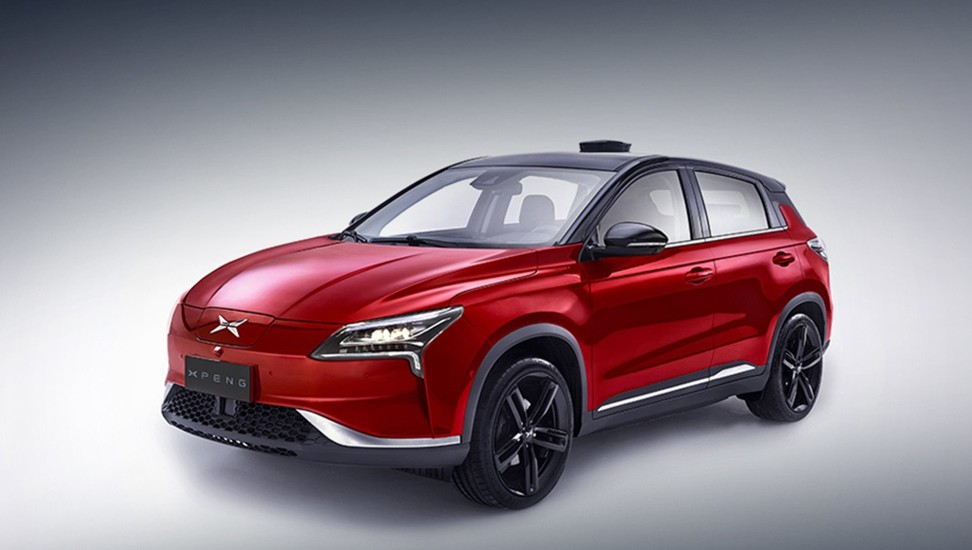
Tesla’s Chinese challenger Xpeng rolls out 10,000th SUV as electric vehicles chip away at China’s car market
- The G3 is an all-electric sports-utility vehicle with a range of 365 kilometres on a single charge, with a sticker price starting from 199,800 yuan after a 22 per cent subsidy
- Xpeng is due to launch its P7 all-electric coupe in December, designed to go as far as 600 kilometres on a single charge
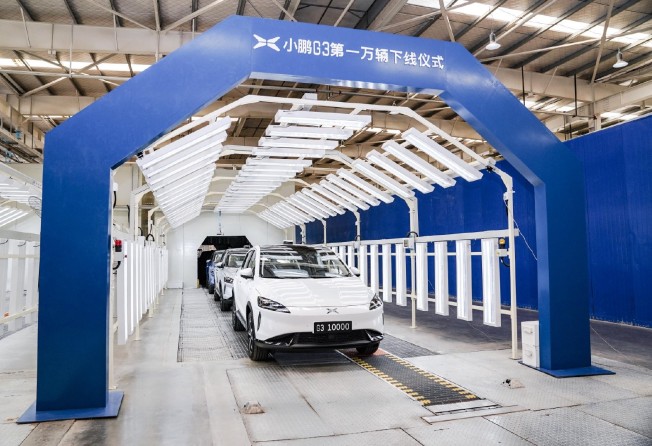
The 10,000th electric vehicle bearing the stylised X logo of Xpeng Motors rolled off the production line in Zhengzhou city today, a major milestone for the start-up that began deliveries in December.
The white Xpeng G3 that emerged from the finishing shop at the Guangzhou-based carmaker’s contract manufacturer Haima Automobile Group – code-named “David” – is an all-electric sports-utility vehicle slightly smaller than Tesla’s Model X midsize SUV, with a certified range of 365 kilometres on a single charge.
“The 10,000th vehicle is an important milestone for us because it validates the management of our direct-to-customer sales and distribution strategy in more than 200 Chinese cities, as well as our ability to manage our supply chain and our manufacturing,” said the carmaker’s chairman and chief executive officer He Xiaopeng, during an interview in Hong Kong.
The roll-out also puts the five-year-old company ahead of its start-up competitors in the past two months in delivering vehicles to China’s growing legion of EV customers. So-called new energy vehicles were the standouts amid a slumping Chinese car market.

Sales of EVs and petroleum-electric hybrids grew 60 per cent in the first four months of 2019 to about 360,000 units, even as the entire car market shrank for the 12th consecutive month in May, with sales falling 12.5 per cent to 1.61 million units.
The year-long US-China trade war had deterred many Chinese consumers from committing to big-ticket purchases, but they were attracted by generous subsidies that cut EVs’ sticker price by more than a fifth, as the Chinese government steers drivers away from burning fossil fuels.
The government’s planning ministry last week instructed local authorities to not let the issuance of registration plates stand in the way of EV sales, a potentially game-changing policy.
“EV makers will take the market share from the assemblers of vehicles that run on internal combustion engines,” He said.
Taking advantage of the government’s subsidies, 486 licensed EV makers – including the assemblers of vehicles that run on internal combustion engines – are chasing the dream of filling China’s roads with zero-emission vehicles. The entire industry, meanwhile, operated at 43 per cent of installed capacity last year.
The EV industry has also become a proxy battle field among China’s largest technology companies, with each investing in at least one electric car maker. Alibaba Group Holding, owner of South China Morning Post and the world’s largest e-commerce platform, is an investor in Xpeng alongside IDG Capital, Hillhouse Capital, Xiaomi’s founder Lei Jun – a mentor figure to chairman He – and K11 Investment founded by Adrian Cheng.
Tencent Holdings and Baidu have led investments into Nasdaq-listed NiO and WM Motor Technology. Tencent, the dominant Chinese social network operator and games publisher, also paid US$1.8 billion for 5 per cent of Tesla in March 2017.
NiO, often hyped as China’s Tesla wannabe, contracts its manufacturing to Anhui Jianghuai Automobile Group, and has delivered 15,337 units of its ES8 all-electric SUV at the end of the first quarter, since delivery began in June 2018.
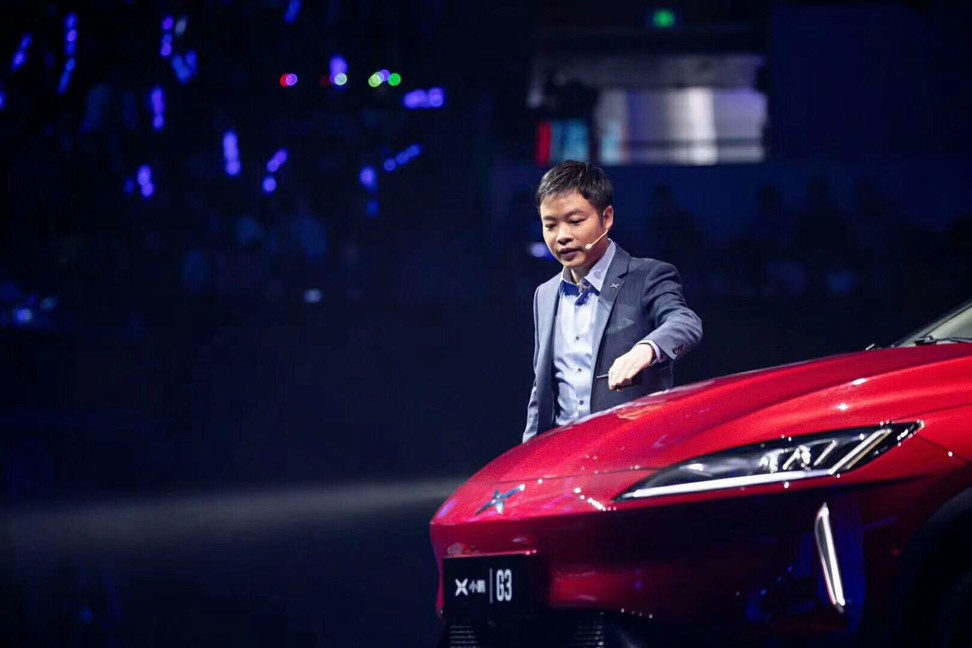
The G3 (G is for Geek) is Xpeng’s debut model, with a starting price of 199,800 yuan (US$28,850) for its Premium version, after a 22.5 per cent subsidy. Its fast-charge battery takes 30 minutes to charge up to 80 per cent capacity.
Every G3 features a panoramic windscreen made by Paris-based Saint-Gobain Sekurit, which offers the driver and the front passenger unobstructed view in front, and above the vehicle.
The Smart and Premium variants of the electric cars feature “localised autonomous driving optimised for China,” which can self-park in 260 different road surfaces and conditions, such as ascending or descending slopes, where Xpeng claims between 70 and 80 per cent success rate. For an extra 30,000 yuan, the Premium model comes with a gesture-sensitive rooftop camera that can take panoramic photographs or selfies in through 360-degree revolutions.
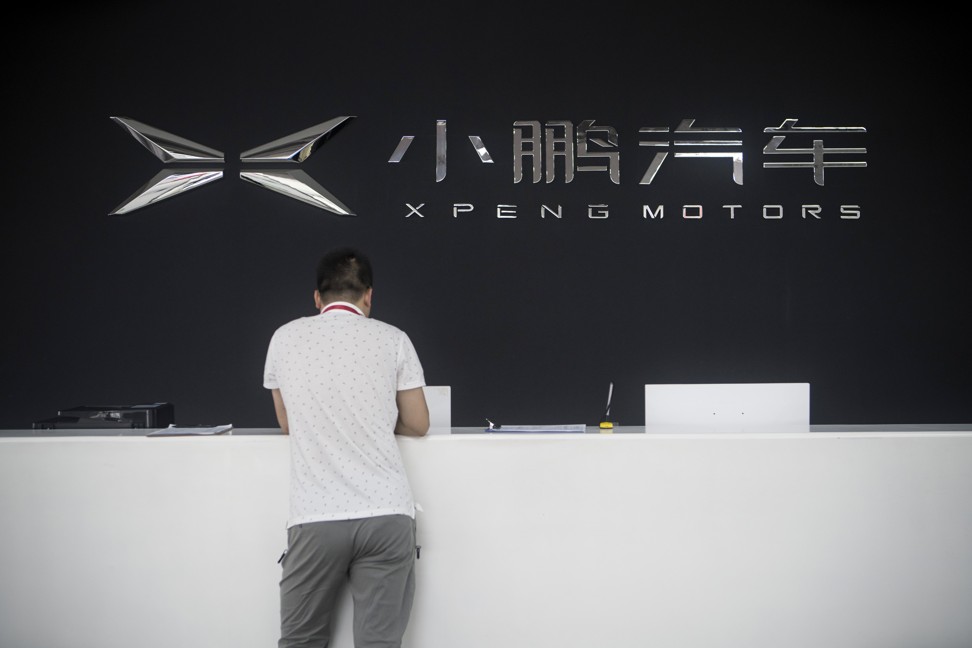
Voice command is an integrated feature, for everything from opening or shutting the boot door to air conditioning, and in-car entertainment.
The carmaker eschews dealerships, choosing to sell directly to customers via its website, and through an authorised retail programme launched in April on Alibaba’s Tmall Global Marketplace platform.
Xpeng is nearing completion of its new factory in Zhaoqing city in Guangdong province, one of the 11 cities that make up the Greater Bay Area (GBA), where it is expected to launch and assemble its P7 coupe. Code-named “Edward”, the P7 (P is for Performance) is an all-electric, four-door sedan that is comparable to Tesla’s Model S in size. Due for a December launch, the P7 is designed with a range of up to 600 kilometres on a single charge.
To finance its expansion, Xpeng is planning a C round of fundraising, which will be “comparable” in size to the previous B and B+ rounds, according to the company’s president and vice-chairman Brian Gu, a former veteran banker at JPMorgan Chase & Co. The company raised US$925 million from the two earlier rounds of fundraising.
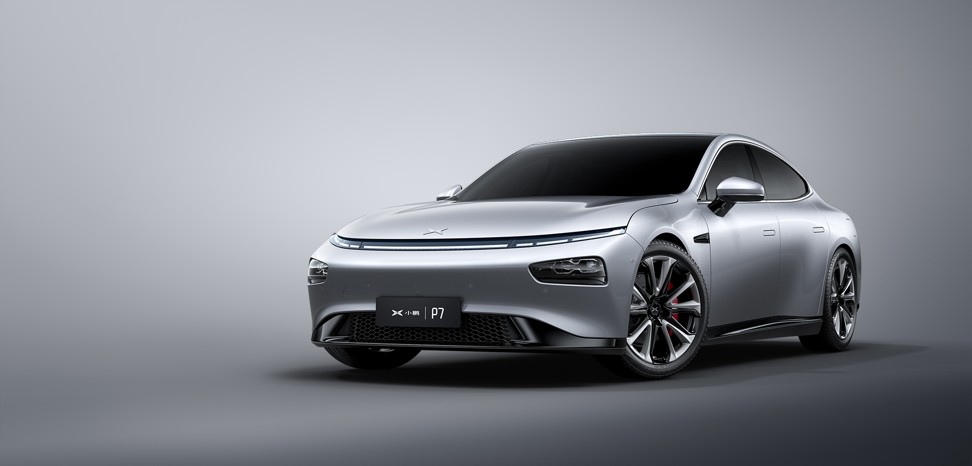
How would a start-up with two models hope to compete with carmakers that have spent decades, even a century, designing and perfecting cars, with portfolios that can launch a new model every month?
Xpeng’s strategy chief Robert “Bobby” Bao, a former fund manger at Fidelity, likened the competition to Apple’s introduction of the iPhone in 2007, running up against existing phone makers that had a design for every budget.
“The iPhone’s hardware was just the one design, but its operating system software ecosystem were made up of hundreds and thousands of applications” that revolutionised cellular phones forever, he said. “We aim to do the same, with our integrated operating system and over-the-air (OTA) platform being the enabler that can broadcast upgrades of new autonomous driving and other smart features straight into the vehicles,” adding that Xpeng has made oneupgrade every month in the past three months.